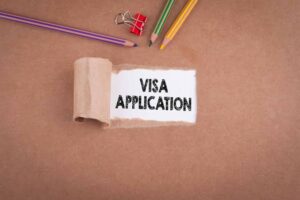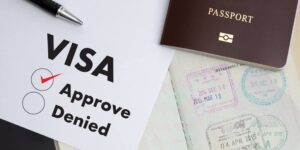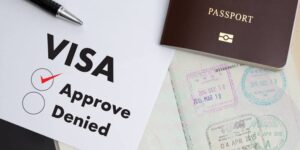Securing a visa for high-demand destinations can be a daunting and complex process. With high rejection rates in many countries, it is crucial to approach the application with meticulous care, attention to detail, and an understanding of the cultural and bureaucratic nuances of the country you are applying to. The good news is that with proper preparation, you can significantly increase your chances of obtaining a visa and ensuring your travel plans proceed without delay.
In this blog post, we will provide you with comprehensive insights into the visa application process, along with tips on how to prepare your documentation, approach the interview, understand cultural nuances, and avoid common pitfalls that could result in a visa denial. By the end of this guide, you will be well-equipped to handle the visa application process for some of the world’s most demanding destinations.
Documentation: Accuracy and Completeness Matter
One of the most critical factors when applying for a visa is the accuracy and completeness of your documentation. Every country has its own set of requirements, and even minor errors or omissions in your application can lead to rejection. To avoid this, ensure you have a thorough understanding of the documentation needed for the visa type you are applying for.
Accuracy in Forms:
Countries like the United States and the United Kingdom are notorious for their strict documentation policies. Filling out forms with incorrect information or failing to provide required details can lead to an immediate rejection of your application. Always double-check your forms for accuracy before submission.
Financial Proof:
One of the most important aspects of your visa application is proving your financial stability. Countries want to ensure that you can support yourself while traveling, without needing to work illegally. To demonstrate this, you will typically need to submit bank statements from the last three to six months. These statements should reflect consistent income and a stable balance. Avoid sudden large deposits in your account, as they might raise suspicions about the source of funds.
For instance, when applying for a U.S. visa, you may be asked to submit a Form I-134 (Affidavit of Support) or similar financial documents, which prove that you have sufficient funds for your stay.
Purpose of Visit:
Clearly outlining the purpose of your visit is another crucial step in the visa application process. Whether you are applying for a tourist, business, or student visa, your intentions should be clearly communicated. Some countries may ask for detailed itineraries or invitation letters. For example, India often requires applicants to submit a detailed travel itinerary or an invitation letter from an individual or organization within the country. This helps to confirm that your visit is legitimate and that you are not planning to overstay your visa.
Travel History:
A solid travel history can work in your favor. Having traveled to countries with stringent visa policies, such as the U.S. or the UK, can demonstrate your credibility as a traveler who complies with immigration rules. If you have previously been granted visas and returned within the designated timeframe, this can strengthen your application.
Interview Preparation: Tips for a Smooth Visa Interview
In many cases, visa applicants are required to attend an interview as part of the application process. This can be one of the most nerve-wracking parts of the procedure, especially for countries with high rejection rates like the U.S. and the UK. Proper preparation can make all the difference.
Language and Communication:
If the interview is conducted in English or another language that you’re not fluent in, it’s essential to practice your responses beforehand. Clear and confident communication can leave a positive impression on the interviewer. Consider practicing with a friend or hiring a professional to help you prepare for potential questions.
Ties to Home Country:
One of the key factors that visa officers assess during an interview is whether you have strong ties to your home country. This is particularly critical for countries like the USA, where proving that you have no intention of overstaying your visa is essential. Be prepared to explain your ties to your home country—whether it’s a stable job, family, property ownership, or any other compelling reasons that will require you to return home after your visit.
For example, when applying for a U.S. tourist visa (B-2), you may need to provide evidence that you have a job or family to return to. This helps to establish your intent as temporary, rather than as someone seeking to immigrate.
Honesty is Key:
It’s essential to be truthful during your interview. Do not provide misleading information or present falsified documents. Doing so can result in an immediate rejection, and in some cases, even a ban from reapplying for a visa. Always answer questions truthfully, and be transparent about your intentions and plans for the trip.
Professionalism:
The way you present yourself can also impact the outcome of your interview. Dressing appropriately and arriving on time shows that you respect the visa process and the officials handling your case. Even though your qualifications and travel history matter, your professionalism can subtly influence the interviewer’s perception.
Understanding Cultural Nuances in Visa Applications
Every country has its own unique cultural expectations, and these can play a significant role in the visa application process. Demonstrating cultural sensitivity can work in your favor and ensure that your application is not inadvertently rejected.
Cultural Sensitivity:
Understanding the cultural context of the country you’re applying to can be crucial. For example, countries in the Middle East may place a strong emphasis on local customs and traditions, and understanding these can positively affect the way your application is viewed. Even small gestures, such as addressing officials by their proper titles or using polite language, can help you make a favorable impression.
Adherence to Local Laws and Expectations:
Some countries, like Singapore, have strict visa policies, especially when it comes to tourism and business. Familiarizing yourself with local laws and expectations about your type of travel can help ensure that your application is accepted. For example, Singapore has very clear expectations regarding the conduct of tourists and businesspeople within its borders, and adhering to these regulations can reflect positively on your application.
Respect for Visa Process and Authorities:
In many cultures, showing respect toward the visa process and the officials handling your case is crucial. For instance, in Japan, respect for authority is deeply ingrained in the culture, and your behavior throughout the visa process can impact how your application is assessed.
General Tips for a Successful Visa Application
In addition to the points mentioned above, there are several general strategies that can help improve your chances of obtaining a visa for high-demand destinations.
Apply Early:
High-demand countries often experience a surge in visa applications during certain periods of the year. It’s advisable to apply well in advance to avoid last-minute rushes and allow ample time to correct any potential issues with your application. By applying early, you also give yourself some flexibility in case any problems arise.
Know the Common Reasons for Visa Rejections:
Familiarizing yourself with the common reasons for visa denials in your target country can be helpful. For example, some countries may reject applications based on financial instability, incomplete documentation, or a lack of a clear return plan. Knowing these potential reasons and proactively addressing them in your application can improve your chances of success.
Use Official Channels:
To avoid scams, always apply for your visa through the official consulates or embassies of the country you are applying to. Many third-party companies offer visa assistance services, but it’s essential to verify that they are authorized. Applying through official channels minimizes the risk of falling victim to fraud.
Post-Application Follow-Up:
Many countries offer tracking services, so you can monitor the status of your application once submitted. Use these services to stay updated on your application’s progress. If your visa is denied, take the time to understand the reasons for the rejection and reapply with the necessary corrections or additional information.
Conclusion
Securing a visa for high-demand destinations requires careful planning, attention to detail, and a clear understanding of each country’s unique visa policies. By preparing your documentation accurately, performing well during the interview, and being culturally sensitive, you can significantly enhance your chances of securing a visa. Remember to stay organized, apply well in advance, and always use official channels for your visa application.
With the right approach, you’ll be on your way to experiencing the destinations of your dreams, even in countries known for their stringent visa requirements.
What are the common reasons for visa rejection?
Common reasons include incomplete or inaccurate documentation, insufficient financial proof, and lack of clear ties to your home country.
How early should I apply for my visa?
It’s best to apply at least 2-3 months before your planned departure to allow enough time for processing and to address any potential issues.
Can I improve my chances of getting a visa if I have a strong travel history?
Yes, a solid travel history to countries with strict visa policies can demonstrate your compliance with immigration rules and help strengthen your application.
What should I do if my visa is denied?
If your visa is denied, review the reasons for rejection and consider reapplying with additional documentation or corrected information.
Is it necessary to have a visa interview for every country?
Not all countries require an interview, but for high-demand destinations like the U.S. or the UK, an interview is typically a mandatory part of the application process